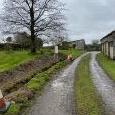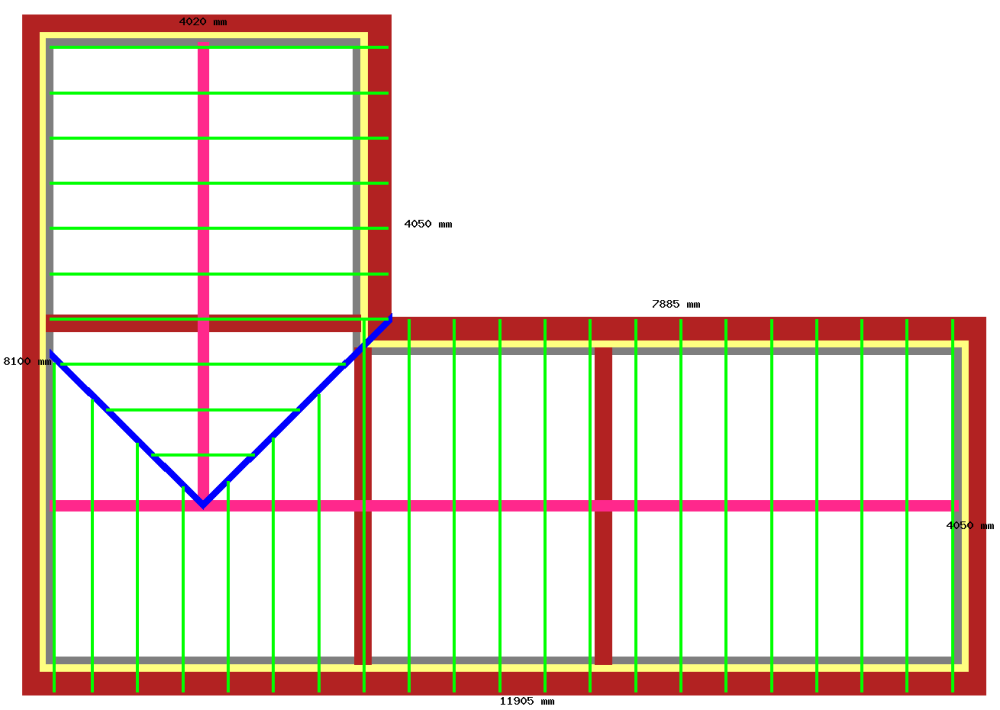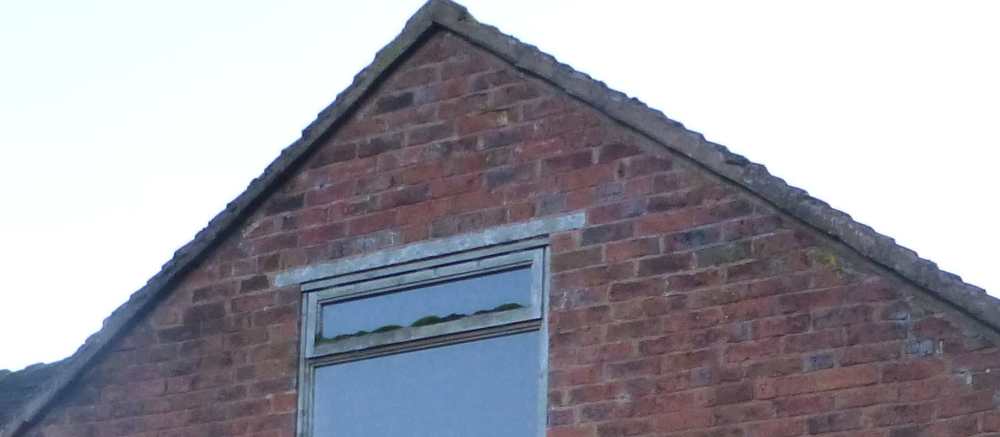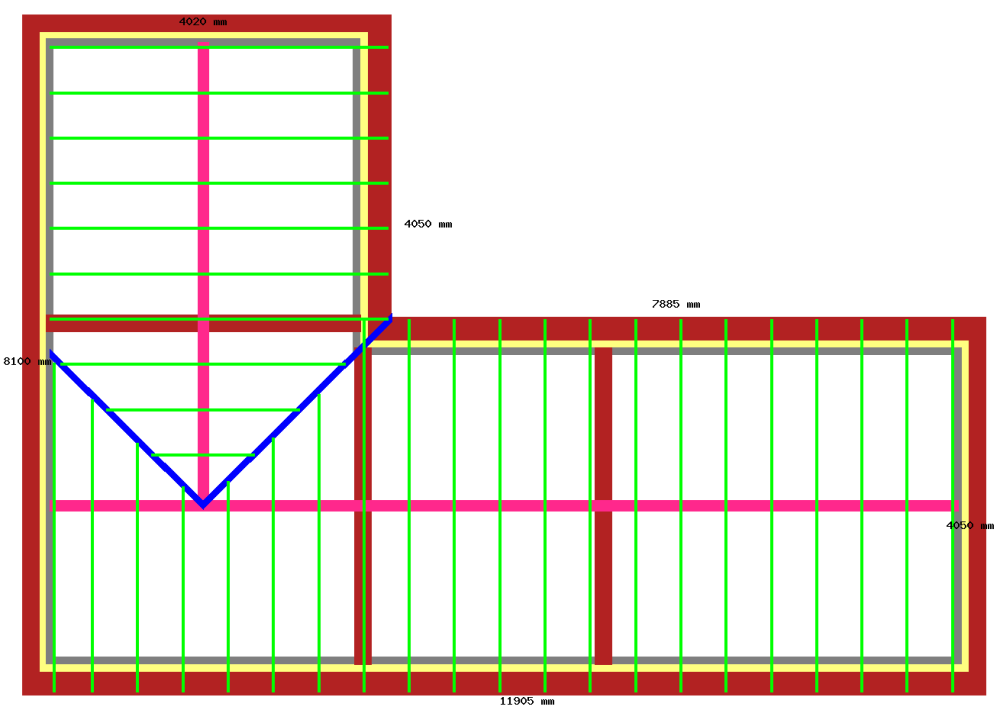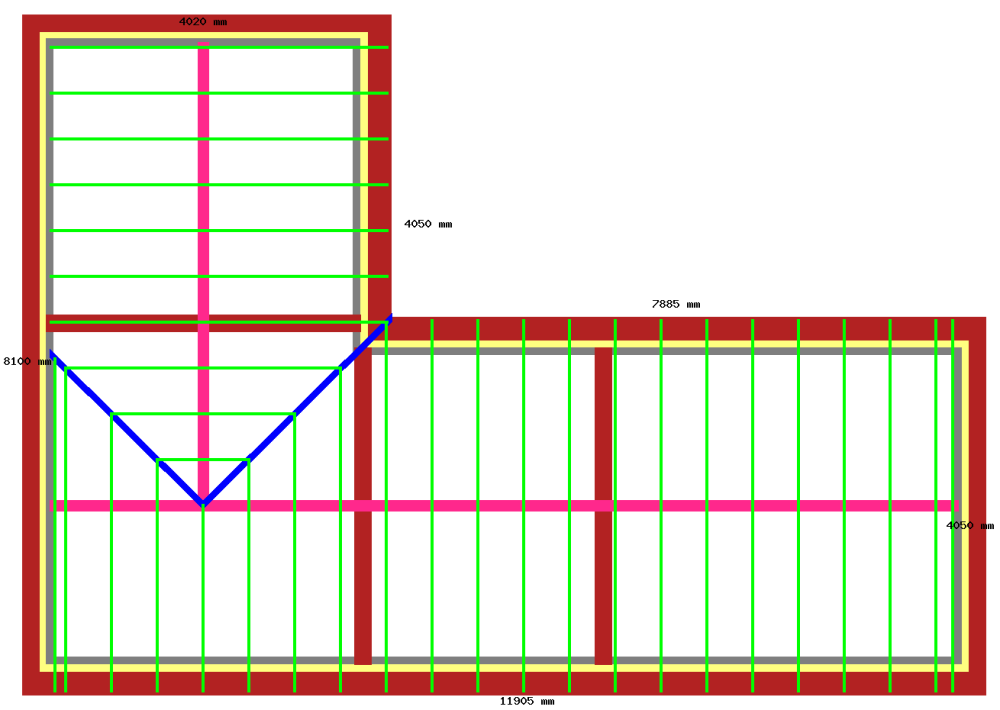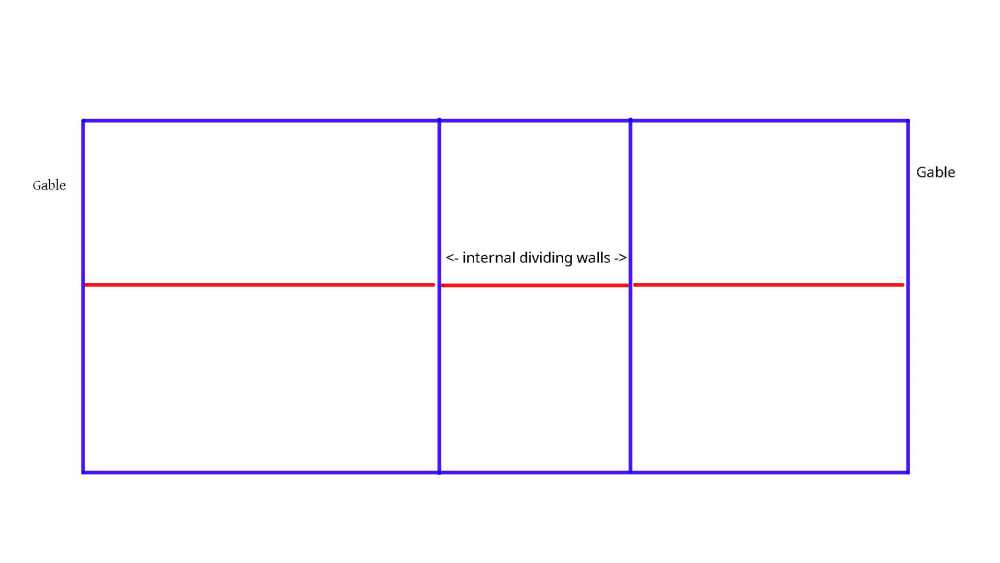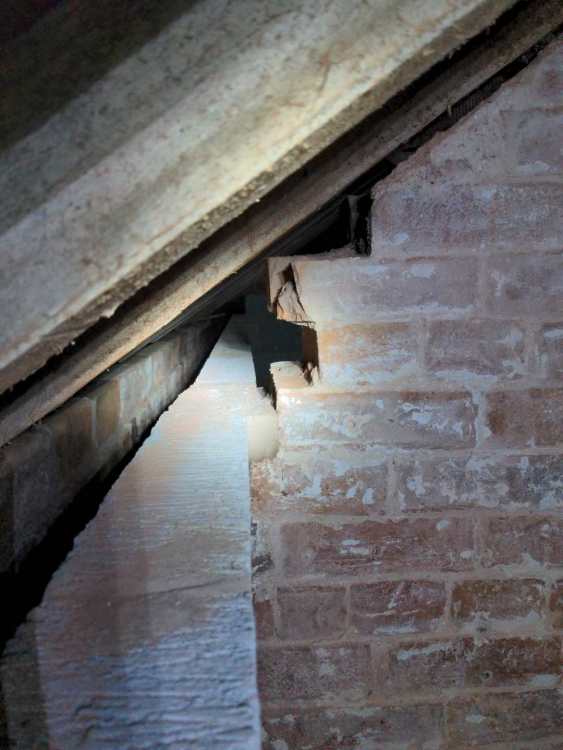
Digmixfill
Members-
Posts
191 -
Joined
-
Last visited
Personal Information
-
Location
Stone
Recent Profile Visitors
3085 profile views
Digmixfill's Achievements

Regular Member (4/5)
20
Reputation
-
Valley rafter installation height?
Digmixfill replied to Digmixfill's topic in Roofing, Tiling & Slating
If I'm going to screw up anywhere with the roof it will be the valley rafter. If the height difference to the main plane is in the hardly noticeable class for my particular case, I'll cut the bird's mouth as the other rafters and adjust if necessary. Thanks Oz -
Valley rafter installation height?
Digmixfill replied to Digmixfill's topic in Roofing, Tiling & Slating
My common rafters are at 35 degrees, and I expect my valley to be somewhere near 26 degrees. Are you saying that if I cut the heel height of the bird's mouth the same on the commons and the valley rafter, the valley will naturally be lower than the main plane of the roof? -
Merry Christmas everyone. I have two roofs at the same pitch and height that join with a pair of valleys that will have valley tiles. Common and jack rafters are 44mm wide, and valley rafters are doubled up. I'm looking at valley rafter installations, and I see some valley rafters set at the same height as the commons and jacks. I see some where the jacks are slightly higher than the valley rafter, so I assume the valley rafter is set lower than the commons in this case? What I have failed to find is any information giving an indication why either variant is used. Is there a reasoning behind the choice?
-
I'm working with timber span tables and using the ".75 but not more than 1kN/m2" column. 600mm spacings are acceptable for the span I have using 44x145 C24. I can get 453mm to work with equidistant spacing, but I still have the irregular valley jacks. We don't have any gable ladders. Just a lump of tile as undercloak and a wet verge. I'm thinking of using a kytun verge when it all goes back on, but with the same 50mm overhang.
-
I have three gables in my roof, and ridges run from them to a pair of valleys. I'm playing around with rafter spacing to see what fits. If I try a centre spacing of around 592mm and space off from the gable rafters toward the valley junction, I can get equidistant spacing, but the valley jacks are irregular. If I start from the valley junction and space outward from it, I get regular valley jacks but have additional gable rafters at the ends. Any thoughts/preferences? In the images grey = internal block, yellow = PIR, pink = ridge beams, blue = valley rafters and green is cut rafter. Gable outer walls and internal dividing walls are 9 inches thick, and corbelled eaves extend around 12.5 inches.
-
Rafter spacing with internal dividing walls?
Digmixfill replied to Digmixfill's topic in Roofing, Tiling & Slating
Building control need the structural engineer's paperwork and they already provide approved rafter span tables. If I where creating some exotic roof style, then it would be prudent to involve them at an early stage, but this is a simple change that results in better roof insulation. Our BC inspectors have so far been really helpful and very accommodating, especially when making improvements. -
Rafter spacing with internal dividing walls?
Digmixfill replied to Digmixfill's topic in Roofing, Tiling & Slating
Everything has to comply with building control, so I don't think changing a purlin to a beam will make any difference to them as long as everything is done correctly. The external look of the roof will not change, so planners won't give hoot about it. -
Rafter spacing with internal dividing walls?
Digmixfill replied to Digmixfill's topic in Roofing, Tiling & Slating
I'm still undecided about the insulation between the rafters. It will be either PIR or mineral wool. I don't mind having to trim odd shapes and sizes. It will be a pain, but in the scheme of things a small job. Roof detail in the plans states "existing", and existing is rather rotted and worm ridden. Took the opportunity to change the roof to ridge beam and vault the lot. Rafter tables suggest we can use any spacing up to 600mm. -
A rough layout of part of our roof is in the attached diagram. A gable at each end with internal dividing walls, with a separate ridge beam for each room. I'm aiming to place insulation between the rafters across the top of the dividing walls. There will be a service gap and counter battening with more insulation below, so rafter spacing doesn't have an effect on plasterboarding etc. I know that the end rafters need to be spaced from the gables with blocking and restraint straps, but i'm unsure what to do spacing wise around the dividing walls? Also, when starting fixing rafters is the best plan to place one at each gable and lay a string between those to get the best line? My plan is to start with an assumed 50mm birds mouth seat with the assumption that I can adjust in-out from 35mm minimum to 1/3 rafter depth maximum.
-
I tried searching for details of allowable overhangs, offset joints etc, but didn't find any wall plate rules other than minimum 38mm deep, must be lap jointed and the 3m/3 rafter span minimum length. If overhangs and offset joints are acceptable I'll experiment and pick the option that is the least offensive I'm going to be the chippie, I hope. The new inner walls are equal heights, but with the building itself not being fully square they aren't parallel. Only two birds mouth per rafter, but I won't be able to template and copy.
-
Hello everyone, I've been dry fitting wall plates and have one niggle to deal with. It's an artefact of my wonky walls When I built the new inner leaf it was stepped back from the existing walls to form the cavity. All of the other junctions are fine, but one junction across an internal wall has an offset of ~ 15mm. If I place the 75x100mm wall plate straight across here I get an overhang. What is the best way to deal with this?

